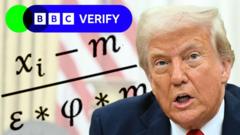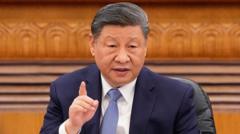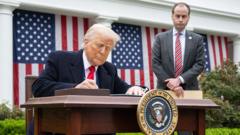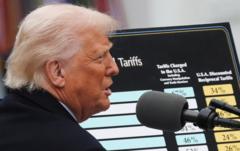As Americans prepare to vote, the outcomes of the 2024 presidential election could significantly impact various global landscapes, from military alliances and humanitarian efforts to economic strategies and climate action.
Implications of the Upcoming US Election for Global Stability
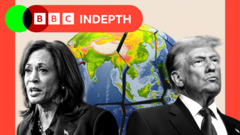
Implications of the Upcoming US Election for Global Stability
The upcoming US presidential election raises critical questions about America's global role amid ongoing conflicts and shifting international alliances.
As the United States approaches its pivotal 2024 presidential election, the world stands in anticipation of potential changes in American foreign policy and its implications for global dynamics. President Joe Biden's symbolic visit to Ukraine highlighted the ongoing commitment to global partnerships, yet the election's outcome could steer the US in divergent directions that reshape its influence internationally.
Vice President Kamala Harris, if elected, is expected to continue Biden's approach, advocating for America's persistent presence in global affairs during turbulent times. In contrast, former President Donald Trump's campaign emphasizes a retreat from traditional alliances, promoting a brand of nationalism that prioritizes "Americanism, not globalism." Both candidates frame their visions against a backdrop of increasing skepticism regarding US hegemony as countries pursue independent foreign policies amid protracted conflicts in Ukraine, the Gaza Strip, and elsewhere.
Experts express concern over the continuity or disruption likely to stem from either candidate's policies. Rose Gottemoeller, ex-NATO deputy secretary general, warns that a Trump administration could weaken the alliance's cohesion with unpredictable military funding strategies, while a Harris victory may maintain a united front, albeit under potential legislative constraints from a Republican-controlled Congress.
The next president will grapple with escalating global tensions reminiscent of the Cold War. Comfort Ero from the International Crisis Group warns that the United States’ influence in conflict resolution is waning, compounded by inconsistent moral authority regarding international crises, as seen in its differentiated responses to the actions of Israel and Russia.
In the context of economic relations, Trump's proposed tariffs against China could substantially shock the global market, whereas Harris is likely to follow a more predictable trajectory, preserving the status quo in US-China relations. Both candidates recognize the competition with China, but observers note Trump's potential unpredictability could lead to unforeseen negotiation strategies.
On climate issues, Mary Robinson of the Elders group highlights the urgent need for effective leadership to combat climate change, a challenge that Trump dismisses in favor of economic growth, while Harris may be pressured to expand upon existing efforts. Regardless of the winner, the debate over climate policy will persist as a crucial aspect of international relations.
Lastly, the election carries significant ramifications for the humanitarian landscape. Martin Griffiths, a former UN humanitarian official, stresses that America's role as a moral leader will be tested. While Harris may advocate for a more principled approach to global conflicts, Trump’s isolationism poses a threat to international aid and collaboration, potentially exacerbating suffering in crisis regions.
Ultimately, the 2024 US presidential election will not only determine the future of America but will also shape global responses to emerging challenges, from military alliances and economic relations to humanitarian crises and climate action. As the world awaits election results, the importance of US leadership remains a matter of vital concern for many nations and communities looking toward a more stable future.






